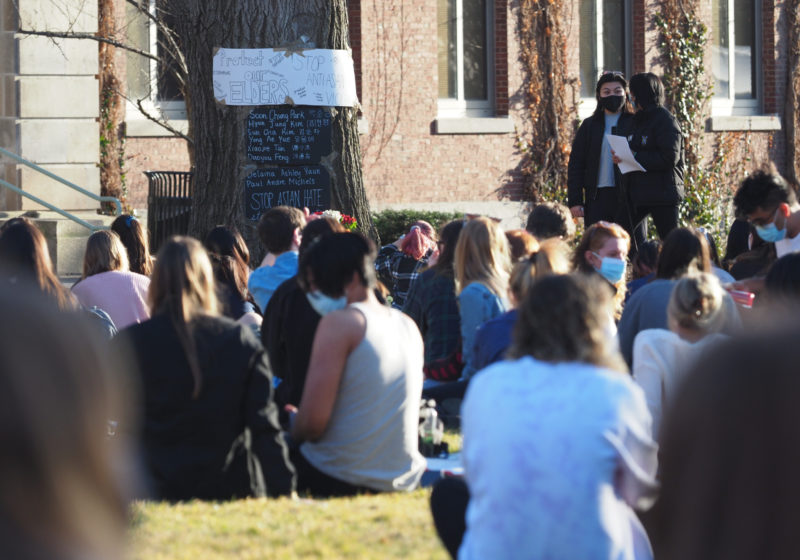Today is March 16, the first anniversary of the tragic anti-Asian hate crimes in the Atlanta, GA area targeted at predominantly Asian, Asian-American and Pacific Islander (AAPI) operated salons, Gold Salon and Young’s Asian Massage. The attacker, Robert Aaron Long, is charged with the murder of Soon Chung Park, Hyun Jung Grant, Suncha Kim, Young Ae Yue, Xiaojie Tan, Daoyou Feng, Delaina Ashley Yaun, and Paul Andre Michels. He is also responsible for afflicting physical and emotional trauma on surviving witnesses and the loved ones of all involved.
Last year, I reflected on these events with my classmates at the “Stop Asian Hate” vigil on the Eastman Quad. I played the opening tunes of “Arirang,” a Korean mourning song, on the carillon, and shared my contemplation on how the media reported the incident with my peers. Long’s decision to attack the salons was purportedly due to his sexual obsessions. These locations frustrated him and he felt entitled to being accommodated, so he eliminated eight individuals on the basis of their race or racial proximity without any consideration for their lives. These ideological patterns are prevalent in casually propagated anti-Asian rhetoric on this campus.
This atrocity was not the effective trigger to anti-racism and the end of Asian hate at UR that I had hoped it would be. Unfortunately, I am not surprised that Asian hate persists, and I am sure that many others aren’t either. Since the massacre, I have witnessed anti-Asian actions on campus, and it humbles me to imagine how drastically my experience would change if I were Asian myself.
One incident that stands out to me was witnessing a non-Asian male student approach a female AAPI student and begin speaking to her in Mandarin, with no introduction whatsoever. Confused as she did not speak Mandarin, the girl realized that the male student had made assumptions about her. Embarrassed by the public display of his ignorance, he felt the need to involve others in mending his self-esteem when she briefly left the room. He insisted to those remaining in the area that she actually could understand him, and she “was quite impressed.” Upon her return, he used diminutive nicknames to address her during the rest of the event and made objectifying and hyper-sexualized comments about her body.
I am proud to say that these remarks did not go unchallenged. It is important to acknowledge that the same ideologies of entitlement at play during the March 16 massacre are present on our campus. Instances of people misrepresenting and abusing AAPIness at the expense of the comfort, safety, and reputations of AAPI individuals in order to console their own ego do occur. The hypersexualization of AAPI women is practiced here as well. While these belief systems might not lead to an on campus slaughter mirroring the Atlanta massacre, they are evidence that UR is not the safe haven from racism it must be to qualify as an equitably safe and productive learning environment for all of its students. Racism is a threat on this campus that must be combated with urgency and intensity. We cannot truly be an institution committed to non-discriminatory and harassment-free education without also being an institution committed to anti-racism. In the wake of this anniversary, let us reflect and recommit to doing our individual parts to achieve this goal at the University: in our classrooms, our social circles, our student groups, and beyond.




